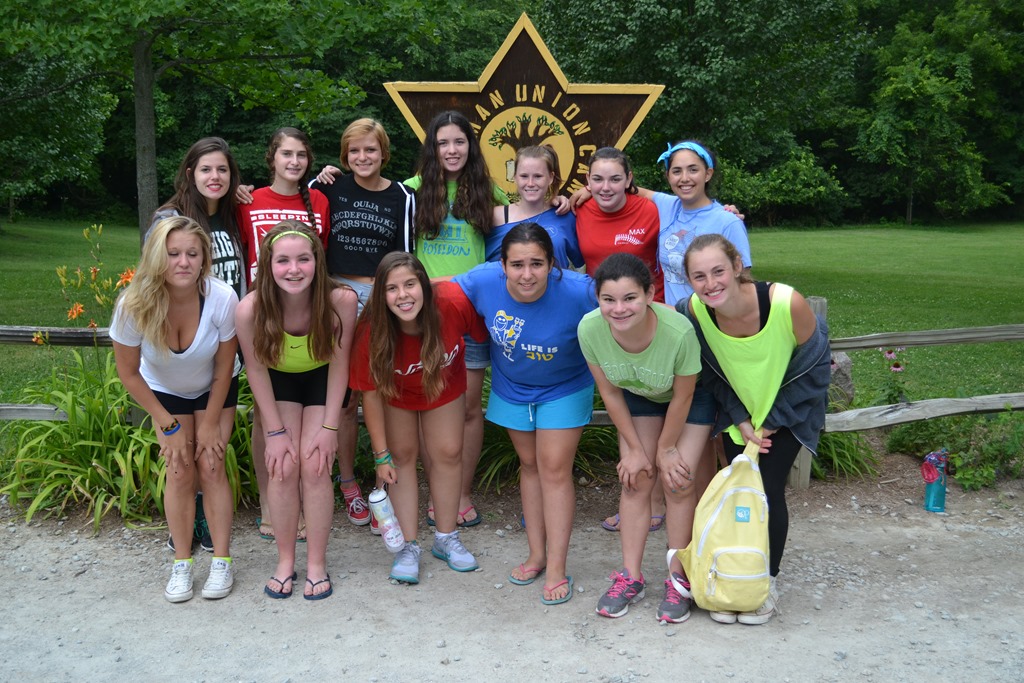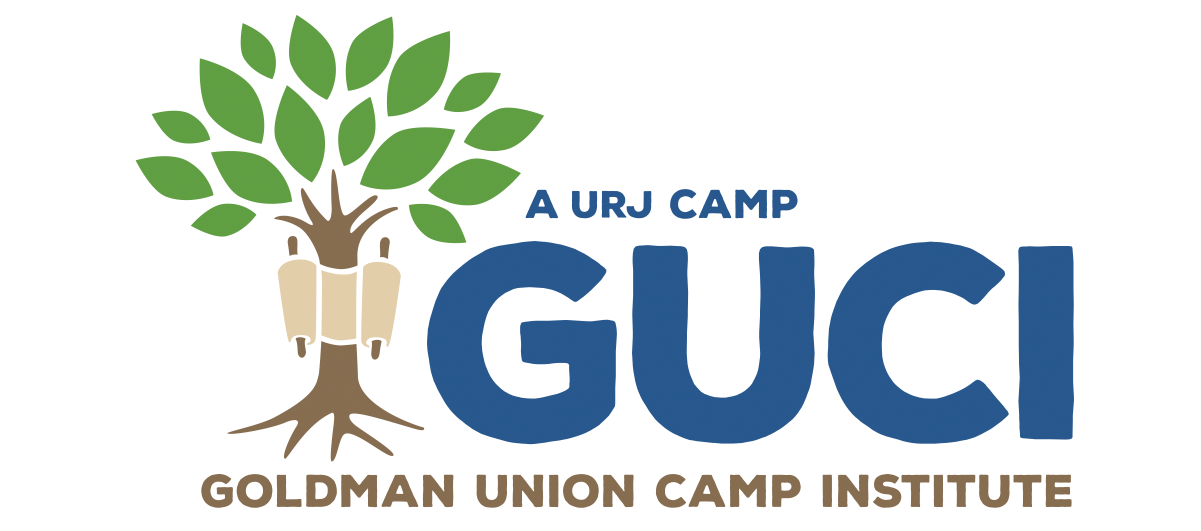
Service for July 27, 2014
Shalom! Almost every evening at camp, we have a different cabin lead T’fillot (services). Each camper writes a part and reads it before all of camp in between the prayers we say or sing as a community. This way, every camper gets the opportunity to share something of themselves with the wider camp, and to teach the community something about their values, Judaism, or their connection to our prayers. Our cabin services make each of our T’fillot that much more unique and meaningful. —Jacob Kraus, T’fillah Specialist
GUCI Evening Service
July 27, 2014
Cabin 4: Thanking and Praying to G-d
Opening Song
When my aunt was 12, she died of leukemia. Ten years ago, my grandfather battled and won against leukemia. Currently, he is suffering with pneumonia and lymphoma. It is hard for him to do the basic things that people do every day like talking and walking. Thank G-d for the little things we do every day. Also, pray to G-d that strength will come to those who need it. -Alana Rothenstein
Bar’chu
When I hear the rom call go off and open my eyes, then go to breakfast I wouldn’t usually think of those things as something special or miraculous, they’re just normal everyday things and when I sit and sing through the services, I take all those examples for granted. A few days ago at Shiur we had discussed about everyday miracles and why we should be thankful. I mean we have these little miracles all the time like a clean water system, food, a house in our daily lives, so why should we be thankful? I am thankful, what if one day we would not have these miracles. I am thankful for all these little miracles. -Talia Doninger
Maariv Aravim
The Ahavat Olam talks about relationship with G-d and our theme is about thanking G-d. I chose this prayer because I am here today. I don’t know about you, but I believe we should thank G-d for a place where hate turns to love; friends turn to family; and a single place referred to as Zionsville Indiana turns to heaven on Earth. -Mia Hollander
Ahavat Olam
How do you pray and thank G-d? Through services? Through Guci? Whatever it may be, think about it. For those of you who know me personally, you know my views on G-d and Judaism are very different. My Judaism is more rooted in practice and mysticism, but I am still thankful and I still do pray to G-d. The Sh’ma is about G-d being one, it is about how G-d is so great and that is true. During the Sh’ma, think about how G-d is one and your special ways of prayer. -Amanda Borek
Sh’ma/V’ahavta
The Mi Chamocha talks about the joy of freedom, but also the acts of redemption. Redemption involves asking G-d for redemption. When I ask G-d for forgiveness, I ask a lot. In everyone’s life, we hurt people, we sin, we struggle to be the good people we are being raised to be. Eventually, we can trap ourselves in a deep, dark world. But, I thank G-d when he puts loving people in my path and those people forgive me, and I forgive them when they fault. When we accept everyone’s flaws, we have the ability to have all our loving people help us in asking G-d to forgive us and thank him. Those people who take you out of that depressed state, and show you the brightness life still is saving just for you. Those people, like my brother Lucas, my parents, my friends, and more. Those people are why I have faith and thank G-d for great blessings, like my brother, my friends, and family. -Sasha Dall
Mi Chamocha
It is very important to me that we thank G-d for safety and peace. It is a miracle that I have a nice warm bed I can wake up in the morning, knowing I live a peaceful life. There are both families in both America and Israel who wake up to war and family deaths. I pray to G-d that we can have peace and help renewed. Please sing along to Hashkiveinu. -Miriam Sutch
Hashkiveinu
Amidah (Avot V’Imahot, G’vurot, Kedushat Hashem)
I think we thank G-d at GUCI during services, because we find a time of peace each night where the whole congregation is joined together to pray together. I think the Shalom Rav connects to our theme by finding peace with G-d while we are praying. I came to GUCI for many different reasons: friends, chug, religion; but I really came because of how peaceful I can be and how I feel peace within the community. GUCI is truly my home away from home. That is why I come back to this wonderful place each year. -Alanna Schlager
Shalom Rav
The Silent prayer is my favorite prayer because it’s like a do it yourself prayer. You can change up what you pray about or think about. During the Silent Prayer I think about people in need and I thank G-d for all that I have. What do you thank G-d for during the Silent Prayer? Please pray silently. -Frances Magee
Silent Prayer, Yih’yu L’ratzon
Aleinu L’shabeiach
On November 3, my sister had a stroke. It was hard on me and my mom and others. Just a few weeks before camp, we found out it was a life or death situation. My sister chose life; not everyone gets that option. Every time you or I say this prayer, thank G-d and celebrate the time you have on this planet. Some people are not that fortunate, so I consider my sister, a living, breathing miracle. So don’t take all of that for granted and be thankful. I hope that this makes you think about all of this. So, what do you take for granted? Think about it and make it into a miracle! -Chloe Ephraim
Mourner’s Kaddish
Closing Song
